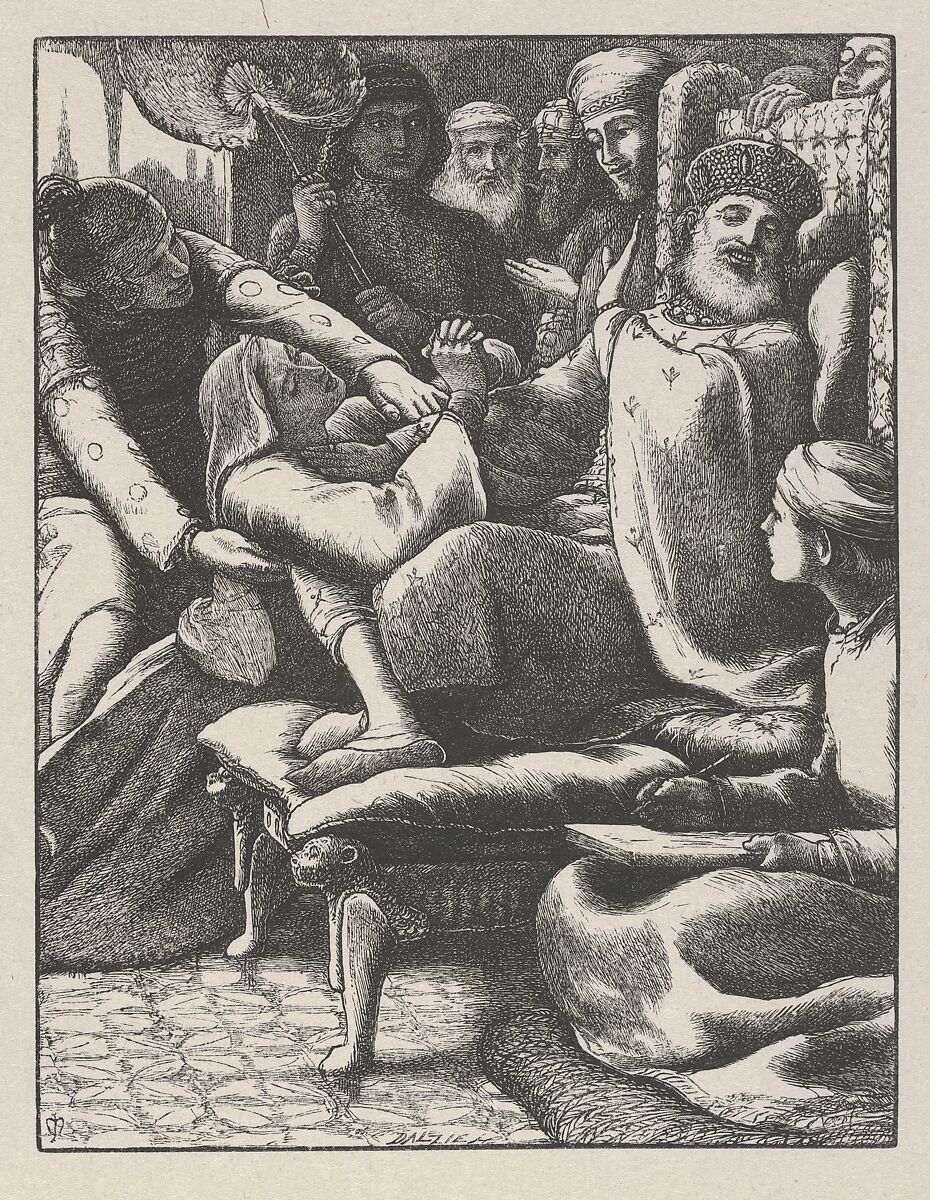Luke 11:9: “And I tell you, ask, and it will be given to you; seek, and you will find; knock, and it will be opened to you.”
Summary:
Luke 11:9 emphasizes that by asking persistently in prayer, believers will be heard and answered by God. This theme is echoed in the Parable of the Persistent Widow (Luke 18:1-8), where a widow’s unwavering plea for justice is ultimately granted by an indifferent judge, illustrating that God, being infinitely just and compassionate, will surely respond to His faithful. The consistent Biblical narrative encourages believers to pray continually and with conviction, aligning their requests with God’s will rather than personal desires. This ongoing dialogue with God, rooted in faith and obedience, assures believers of His provision and justice in His perfect timing, nurturing spiritual growth and a deeper connection with Him.
Parable of the Persistent Widow
Luke 18:1-8: “And he told them a parable to the effect that they ought always to pray and not lose heart. He said, “In a certain city there was a judge who neither feared God nor respected man. And there was a widow in that city who kept coming to him and saying, ‘Give me justice against my adversary.’ For a while he refused, but afterward he said to himself, ‘Though I neither fear God nor respect man, yet because this widow keeps bothering me, I will give her justice, so that she will not beat me down by her continual coming.'” And the Lord said, “Hear what the unrighteous judge says. And will not God give justice to his elect, who cry to him day and night? Will he delay long over them? I tell you, he will give justice to them speedily. Nevertheless, when the Son of Man comes, will he find faith on earth?”
Analysis
The Parable of the Persistent Widow is much like the Parable of the Friend at Midnight in Luke 11:5-8 in that both parables encourage persistent prayer and reliance on God’s provision and justice.
1 John 5:14-15 states, “And this is the confidence that we have toward Him, that if we ask anything according to His will He hears us. And if we know that He hears us in whatever we ask, we know that we have the requests that we have asked of Him.”
Another verse addresses this issue a little differently. In James 4:2, he declares, “You desire and do not have, so you murder. You covet and cannot obtain, so you fight and quarrel. You do not have, because you do not ask.”
It is essential, initially, to establish that God does not listen to or answer the prayers of the unsaved except for their prayer of faith and repentance in desiring redemption. Isaiah 59:2 confirms this: “But your iniquities have made a separation between you and your God, and your sins have hidden his face from you so that he does not hear.” We need to remember that unsaved man is at enmity with God as James 4:4 affirms, “…Do you not know that friendship with the world is enmity with God? Therefore whoever wishes to be a friend of the world makes himself an enemy of God.” Out of God’s love and kindness, He does bestows common grace on both the saved and unsaved, as described in Matthew 5:45, “That you may be children of your Father in heaven. He causes his sun to rise on the evil and the good and sends rain on the righteous and the unrighteous.” Beyond that, and in a very real sense, the unredeemed are on their own.
It might also be helpful to dispel a common theological misconception surrounding prayer. The Bible does not support the “name it and claim it” prosperity gospel. This false belief, which is often associated with the Word of Faith movement, emphasizes the power of speaking things into existence through faith and positive confession. It puts man’s wants and desires over trust and obedience, transforming God into a magical genie who grants all of one’s carnal wishes. Adherents believe that they can bring their desires into existence by demanding health, wealth, and success. Like Romans 1:25, it honors “the creature rather than the Creator.”
But how does this prayer stuff fit together?
Let’s begin with the believer’s relationship with God. Galatians 4:6 expounds on this when it states, “And because you are sons, God has sent the Spirit of his Son into our hearts, crying, ‘Abba! Father!’” We are children of God, with the Holy Spirit actually living inside us. As in any father-child relationship, there is a means of communication. God communicates to us through His word as expressed in 2 Timothy 3:16-17, “All Scripture is breathed out by God and profitable for teaching, for reproof, for correction, and for training in righteousness, that the man of God may be complete, equipped for every good work.” Psalm 119:105 affirms, “Your word is a lamp to my feet and a light to my path.”
If the Bible is how God speaks to us, prayer is how we speak to God. In fact, 1 Thessalonians 5:16-18 even shows prayer to be God’s will when it states, “Rejoice always, pray without ceasing, give thanks in all circumstances; for this is the will of God in Christ Jesus for you.”
Knowing how our communication works, let’s discuss some of the specifics.
God states He is able and willing to hear our prayers, and we need to approach Him confidently. After all, we are His children, and He is our Father. I referenced Galatians 4:6 earlier, but Romans 8:15 also proclaims this: “For you did not receive the spirit of slavery to fall back into fear, but you have received the Spirit of adoption as sons, by whom we cry, ‘Abba! Father!’”
1 John 5:14-15 has an interesting caveat when it states, “He hears us” when “we ask anything according to His will.” Now, suspicious minds might perceive this as a cop-out, but that’s not the intent at all. As we grow in our faith and obedience to God, we begin, more and more, to align our will with His will. This is precisely what Romans 12:2 remarks, “Do not be conformed to this world, but be transformed by the renewal of your mind, that by testing you may discern what is the will of God, what is good and acceptable and perfect.” This “renewal of your mind” entails a fundamental transformation in the way believers think and perceive the world. It includes everything from letting Biblical truths shape one’s thoughts and decisions, to the gradual process of becoming more like Christ, to gaining the ability to discern what is the will of God, to not conforming to the patterns of this world. All of these factors, when obedient, slowly but surely aligns your will with God’s will such that praying “according to His will” becomes praying according to your will also.
1 Thessalonians 5:16-18 adds another interesting element when it states we are to “pray without ceasing.” Ephesians 6:18 also commands this, “Praying at all times in the Spirit, with all prayer and supplication…” as does Colossians 4:2, “Continue steadfastly in prayer, being watchful in it with thanksgiving.” We often quickly read past these commands giving slight attention to what they really mean. Most believers conclude that prayers are to be conducted before bedtime, or before we eat, and when we go to church. But this is not what God is saving. “Without ceasing” is an ongoing effort to speak to God even outside of these normal prayer times. It’s a way of keeping our thoughts on God. We are to have a heart attuned to God, to be constantly aware of His presence, and to frequently offer short and spontaneous prayers throughout the day in response to our situation, needs, and blessings. This is, perhaps, one of the most challenging yet growth-rewarding practices we can do. I heartily recommend you develop a lifestyle that includes praying without ceasing.
As believers, we must continue to develop our faith and trust in God’s wisdom and timing in answering our prayers according to His perfect plan. We know He is sovereign and will answer us, but how and when will he continue to be a source of growth for us? And that’s precisely what’s intended. One of our most influential trials will be unanswered or delayed prayer requests. James 1:-24 illustrates this when it says, “Count it all joy, my brothers, when you meet trials of various kinds, for you know that the testing of your faith produces steadfastness. And let steadfastness have its full effect, that you may be perfect and complete, lacking in nothing.” What growth would we have if everything we desired immediately became available?
There’s a certain sadness in the unanswered prayers of justice for a poor widow. James 1:27 demonstrates this when it says, “Religion that is pure and undefiled before God, the Father, is this: to visit orphans and widows in their affliction, and to keep oneself unstained from the world.” Time and time again, the Bible refers to taking care of widows and orphans, the most vulnerable in society. Perhaps some of our prayer requests should also be directed to heeding that concern.









